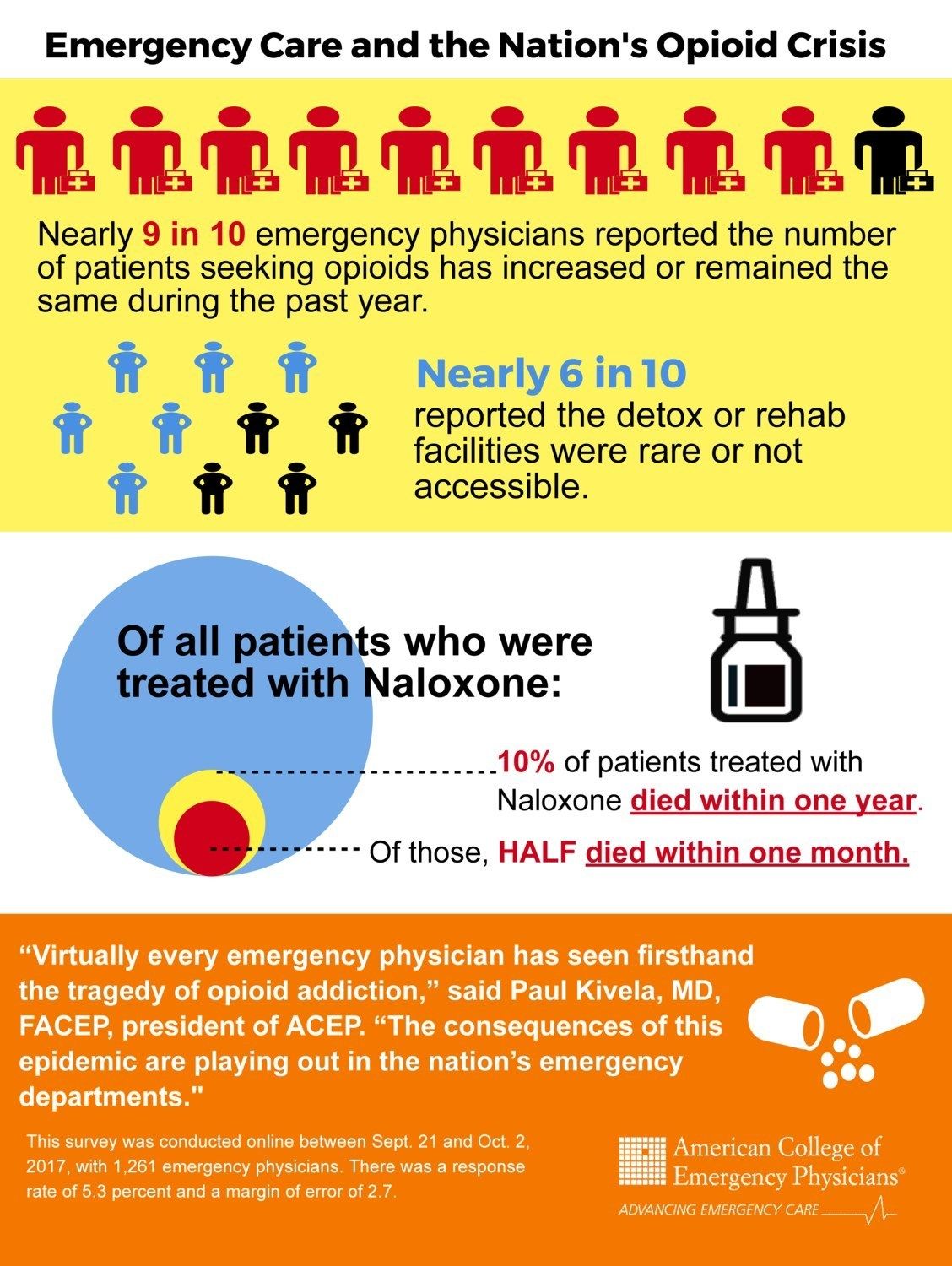By EMS1 Staff
WASHINGTON — Two recent studies gave new insight into opioid addiction, such as the difficulty to recover from opioid dependency and who is more likely to become addicted.
ACEP reported that the studies were presented at the American College of Emergency Physicians annual meeting.
“Virtually every emergency physician has seen firsthand the tragedy of opioid addiction,” ACEP president Paul Kivela said. “The consequences of this epidemic are playing out in the nation’s emergency departments. Almost all the emergency physicians responding to an ACEP poll (87 percent) reported that the number of patients seeking opioids has increased or remained the same. More than half (57 percent) said that detox and rehabilitation facilities were rare or never accessible.”
One study said that about 10 percent of opioid addicts who were treated for an overdose with naloxone died within a year of treatment, half of those who died did so within one month of treatment.
“Patients who survive opioid overdoses are by no means ‘out of the woods,’” lead study author Scott Weiner said. “These patients continue to be at high-risk for overdose and should be connected with additional resources such as counseling, treatment and buprenorphine.”
The second study found that people who were exposed to early childhood trauma were more at risk for opioid abuse. Researchers studied patients who came to the emergency department after an overdose had high rates of other mental health diagnoses and exposure to childhood trauma.
“In order to truly reach overdose survivors, we need a much better understanding of who they are and the many challenges they face when they seek care,” lead study author Krista Brucker said. “Designing and implementing effective outreach and referral programs will require listening carefully to patients and taking into account the impact of untreated mental illness, exposure to childhood trauma and many other medical and social determinants of health.”
Kivela added that prevention is the ultimate solution.
“Emergency physicians are working on solutions, such as the Alternatives to Opiates Program at St. Joseph’s Regional Medical Center in New Jersey,” Kivela said. “Policymakers also are focused on this epidemic. For example, Congress appropriated $500 million under the 21st Century CURES Act in 2016 to battle the opioid crisis. It’s important not to overreact, because people have legitimate pain. It took many years for us to get to this place, and it will take time to get out.”

Two recent studies gave new insight into opioid addiction, such as the difficulty to recover from opioid dependency and who is more likely to become addicted. (Photo/ACEP)

